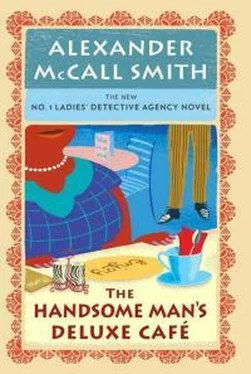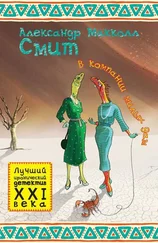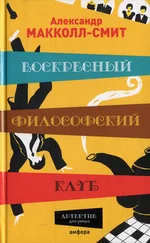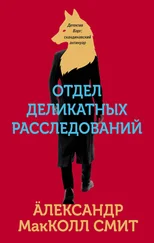Mma Ramotswe slipped the business plan into a drawer. The trouble with plans, she thought, was that they tended to be expressions of hope. Everybody, it seemed, felt that they should have a plan, but for most people the plan merely said what they would like to happen rather than what they would actually achieve. Most people did what they wanted to do, whether or not that was what their plan said they should do. So plans were useful only in revealing what people wished for. If you wanted to know what they would actually do, then the only way of finding out was by watching them and seeing what they did. Then you would know what they might do in the future – because most people did what they had always done. That, thought Mma Ramotswe, was well known – in fact, it was one of the best-known things there was.
‘We can talk about plans some other time,’ said Mma Ramotswe. ‘We would not want this client to think that we sit about making plans all the time.’
Mma Makutsi felt rather relieved. She was aware that her business plan was optimistic, but she had found it difficult to write anything that took a bleak view. After all, what did it matter? The important thing was that they were perfectly all right as they were. She had Phuti Radiphuti and her baby and her new house. Mma Ramotswe had Mr J. L. B. Matekoni and her white van and Puso and Motholeli. She had her garden, too, with her mopipi tree and the runner beans. And they both had the land about them; the sky that went on for ever, it seemed, and was filled with sun and with the air that they all needed, that the cattle needed, that the animals in the Kalahari needed – there was plenty of that; they had Botswana. So everybody had the things that mattered, when you came to think of it, and if you had that, did you really need a business plan?
Those were the thoughts in Mma Makutsi’s mind as she watched the car being parked beside Mma Ramotswe’s white van under the acacia tree. Two people got out – two clients, not one: as in the business plan.
Chapter Two
People with Very Long Noses
Mma Makutsi opened the door to their visitors.
‘Mr and Mrs…’ she announced, looking at them expectantly.
The man shook his head. ‘Not Mr and Mrs,’ he corrected. ‘Mr and Miss.’
Mma Makutsi was unembarrassed. ‘Then Mr and Miss…?’
The man shook his head again. ‘No, Mma. I am Mr and this lady with me is my sister only. We do not have the same name because —’
Mma Makutsi cut him short. ‘Because your sister is married? Of course, Rra. That must be the reason.’
The man looked at Mma Ramotswe, who had now risen from her desk to greet them. A look of understanding passed between them – a look that said: we have both had over-zealous assistants – they mean well, of course, but have a lot to learn.
Mma Ramotswe stepped forward. ‘I’m Mma Ramotswe,’ she said, extending her hand. ‘And this lady is my assis —’ She remembered barely in time. ‘My co-director.’
The words slipped out. Technically, Mma Makutsi had become a partner in the business; had it been a company, she might have been a director, but it had never been incorporated – ‘hardly worth doing when the shares would be worth nothing’ said Mr J. L. B. Matekoni’s accountant, who, as a favour, did the accounts of the agency. Partner, though, had come to mean something else – as Mma Ramotswe had read in a magazine – and she felt a different word was needed. She knew that she could have called her a business partner, but that was cumbersome, almost pernickety, and Mma Makutsi was so much more than a business partner. She was the person who made the tea, who commented on the state of the world as they drank the tea she made, who answered the phone, did the filing, and kept the young mechanics in their place. It was a large role, one for which the term business partner simply seemed inadequate, but which seemed fully worthy of the label co-director .
The compliment might well have slipped out unnoticed, but it did not. Mma Makutsi heard it and its effect was electric. She seemed to grow in stature, become a bit taller, and smile a bit more broadly.
The man nodded at the introductions. ‘And my name is Sengupta,’ he said. ‘And my sister…’ He gestured to the woman beside him. ‘My sister’s good name is Chattopadhyay, which was the name of her late husband, my brother-in-law. It is a long name and so people call her Miss Rose, which is easier. That is not her real first name, but it is the one that people use. Just remember: red flower with thorns, and you will not forget her name.’
There was something earnest about his manner that endeared him to Mma Ramotswe. She smiled encouragingly. ‘It is a fine name to have.’ She had been discreetly studying their visitors and the memory she had been trying to locate had now surfaced. Sengupta Office Supplies – she had seen their advertisements in the newspaper. Paperclips, staples, copier paper…
‘Exactly,’ said Mr Sengupta.
Mma Ramotswe looked surprised.
‘You mentioned paperclips,’ he said.
She had muttered the words without realising, as unintentionally as she had said co-director . It was a worrying prospect: if one started to say what one was thinking, the results could be very embarrassing. She might think, Oh, there goes Mma Makutsi again – sounding off about the usual things , and were she to say that, the consequences would be awkward. There would be all sorts of misunderstandings… or would they be misunderstandings at all? Truth would break out, rather like the sun coming out from behind a cloud, and we would all understand one another perfectly well, because we would know what we thought of each other.
‘Paperclips?’ said Mma Ramotswe. ‘Oh, yes, paperclips. You’re the office supplies man, aren’t you, Rra?’
Mr Sengupta seemed proud that his business had been recognised. ‘That is exactly who I am, Mma.’ He looked about the office. ‘Perhaps you use some of our items?’
Mma Makutsi shook her head. ‘We do not,’ she said. ‘We go to a company out near Broadhurst. They are —’
Mma Ramotswe shot a glance in her assistant’s direction. ‘I have seen your catalogue, Rra,’ she said quickly. ‘They are very fine products, I think.’
‘There is room for more than one company,’ said Mr Sengupta generously. ‘Competition in business is a good thing, I believe.’
‘It is very important,’ said Mma Makutsi.
‘But you are the only detective agency in town,’ went on Mr Sengupta. ‘Unless there is some other outfit that I am unaware of. Perhaps it is in disguise.’ He laughed at his own joke.
‘That is very funny, Rra,’ said Mma Makutsi. ‘They would be very good at disguises but nobody would know they were there.’
Mr Sengupta’s response was touched with annoyance. ‘That is what I meant,’ he said.
Mma Ramotswe judged it was time to take control of the situation. ‘Please sit down, Mr Sengupta… and Miss Rose.’ She gestured to the two client chairs before her desk. The chairs had always been in that position – ever since they had moved into the office – although recently Mma Makutsi had shifted them so that they were at least half facing her desk as well. Mma Ramotswe had not approved of this, as she found it awkward talking to people side-on, and had returned them to their original position, facing her directly. But now, as the man and the woman sat down, she realised that there would be further chair issues: one could not have clients sitting with their backs to a co-director.
Mma Makutsi was hovering behind them, and now offered the visitors tea. This offer was gratefully accepted by Miss Rose, who spoke for the first time. ‘I am very fond of tea,’ she said. ‘I drink it all the time.’
Читать дальше







![Александр Макколл Смит - Отдел деликатных расследований [litres]](/books/397661/aleksandr-makkoll-smit-otdel-delikatnyh-rassledova-thumb.webp)




